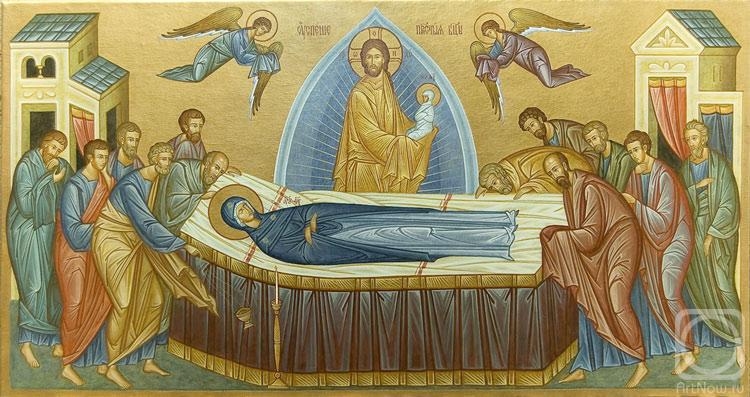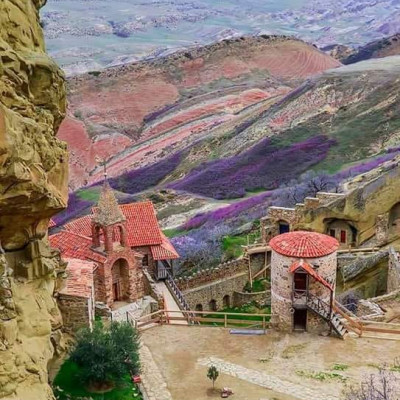
August 28 marks one of the most important dates in the Georgian Orthodox calendar, the Feast of the Assumption of the Blessed Virgin Mary, a day deeply cherished by Georgians not only for its religious significance but also for its cultural and spiritual role in daily life. Known in Georgia as Mariamoba, this holiday is a profound expression of faith, tradition, and community that has been observed for centuries. The Assumption, which celebrates the Virgin Mary being taken up into heaven, is one of the most important events for the Orthodox world, yet in Georgia it has an especially deep resonance, since the Virgin Mary is considered the protector and patron of the nation. According to tradition, Georgia was consecrated to the Mother of God by Saint Andrew the Apostle, who is said to have preached in the land in the first century, and ever since then, devotion to the Virgin Mary has been a cornerstone of Georgian Christianity. For Georgians, Mariamoba is more than a commemoration of a sacred event, it is a day to reflect on the profound role of Mary in their faith, family, and history. The Virgin Mary is often called “the Mother of Georgia,” and many churches, monasteries, and landmarks across the country are dedicated to her, from the majestic Svetitskhoveli Cathedral in Mtskheta to small chapels in the mountain villages. On this day, the faithful gather in churches for special liturgies, prayers, and blessings, and the atmosphere is one of solemn joy, reverence, and unity. Families dress in their best clothing, bring offerings to church, and participate in candle lighting, while priests lead services filled with chants that have been passed down through generations. For many, Mariamoba is also a time for fasting and spiritual preparation, as it comes at the end of the two-week Dormition Fast, one of the strictest periods in the Orthodox calendar, which highlights the importance of prayer, humility, and renewal of the soul. The culmination of this fasting period makes the feast day even more meaningful, as it symbolizes both discipline and celebration, a journey of spiritual cleansing that leads to joy and communion. Beyond the religious services, Mariamoba is also a cultural celebration, weaving together Georgia’s ancient traditions, family values, and deep respect for heritage. Families gather for festive meals after attending church, sharing traditional dishes, wine, and heartfelt conversations. Villages and towns often host local events, and many people take the opportunity to visit monasteries and sacred places dedicated to the Virgin Mary, such as the Bodbe Monastery in Kakheti, which is one of the most visited pilgrimage sites in Georgia. The holiday also has a strong connection to the Georgian sense of identity and nationhood. In times of hardship and struggle, Georgians have turned to the Virgin Mary for protection and guidance, believing her intercession helped preserve their faith and culture. This devotion has given Mariamoba a special place in the hearts of Georgians, as it embodies resilience, hope, and the unbreakable bond between the people and their faith. Even today, when many aspects of life are rapidly modernizing, Mariamoba remains a day when the spiritual outweighs the material, reminding Georgians of their roots and the enduring values of faith, family, and tradition. For visitors to Georgia, experiencing Mariamoba offers a unique insight into the soul of the country. Attending a church service on this day provides not only a glimpse into the beauty of Georgian Orthodox rituals but also the chance to witness the profound devotion that unites communities. The sight of families gathered in ancient stone churches, the sound of polyphonic chants echoing through sacred halls, and the sense of peace and reverence create an unforgettable impression. Travelers may also explore the many Marian shrines and monasteries, each with its own legends and historical importance, deepening their understanding of how faith and culture intertwine in Georgia. August 28 is therefore not simply a religious observance but a living tradition that touches every aspect of Georgian life. It is a time when generations come together, when history and spirituality merge, and when the Virgin Mary is honored not just as a figure of faith but as the eternal guardian of the Georgian people. For Georgians, Mariamoba is a day that unites past and present, heaven and earth, prayer and celebration, creating a spiritual tapestry that defines their identity. This is why the Feast of the Assumption of the Blessed Virgin Mary is so special for Georgians, a day that continues to inspire faith, hope, and unity across the country.






 Deutsch
Deutsch
 русский
русский
